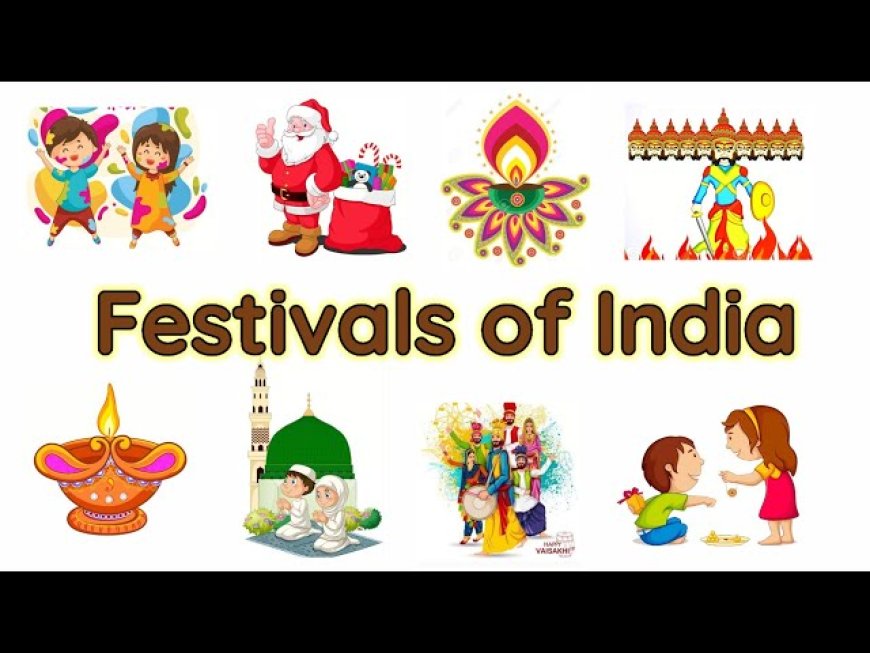Why We Should Never Stop Celebrating: The Multifaceted Benefits of Festivals
Discover why celebrating festivals is more than just tradition. This blog explores how festivals foster community, preserve culture, offer spiritual renewal, reduce stress, and create lasting memories for individuals and societies alike.

In a world that seems to be accelerating at an unprecedented pace, where digital screens often replace human interaction, and the pursuit of individual goals can sometimes isolate us, the enduring tradition of celebrating festivals stands as a vibrant counterpoint. More than just a break from routine or an excuse for merriment, festivals are deeply ingrained in the fabric of human society, offering a wealth of benefits that nourish our individual well-being and strengthen our collective bonds. So, why should we continue to celebrate festivals with enthusiasm and dedication? The reasons are profound and multifaceted.
1. Fostering Community and Connection: At their core, festivals are powerful catalysts for bringing people together. Whether it's the joyous gatherings of Diwali, the communal breaking of fast during Eid, the festive parades of Carnival, or the family feasts of Thanksgiving, festivals create opportunities for shared experiences. They break down social barriers, encourage interaction, and rekindle relationships. In a world where loneliness is increasingly prevalent, these moments of collective celebration are invaluable, reminding us that we are part of something larger than ourselves – a community, a family, a shared humanity.
2. Preserving and Transmitting Culture: Festivals are living museums of our cultural heritage. They are vibrant expressions of traditions, rituals, stories, music, dance, and culinary practices passed down through generations. Through the celebration of festivals, we actively participate in keeping these invaluable aspects of our identity alive. They teach us about our roots, our ancestors, and the values that have shaped us. For children, festivals are particularly crucial, offering an immersive and engaging way to learn about their heritage, ensuring that these rich traditions continue to thrive for future generations.
3. Providing Spiritual and Emotional Renewal: Many festivals have deep spiritual or religious roots, offering a time for introspection, devotion, and renewal. They provide an opportunity to reconnect with our inner selves, reflect on our beliefs, and find solace and meaning beyond the material world. Even secular festivals, through their focus on gratitude, hope, or unity, offer a similar sense of emotional upliftment. The shared rituals and collective positive energy can be incredibly restorative, helping us to release stress, find peace, and rejuvenate our spirits.
4. Offering a Welcome Break from Routine and Stress: In our demanding modern lives, the relentless cycle of work and responsibilities can lead to burnout and stress. Festivals provide a much-needed respite, a designated time to step away from daily pressures. They encourage us to slow down, enjoy the present moment, and engage in activities that bring us joy and relaxation. This break is not just a luxury; it's a necessity for our mental and physical well-being, allowing us to return to our routines with renewed energy and perspective.
5. Creating Lasting Memories and Shared Experiences: Think back to your fondest childhood memories – chances are, many of them revolve around festivals. The anticipation, the special foods, the decorations, the gatherings with loved ones – these moments become etched in our minds, forming a treasury of joyful recollections. Festivals create a shared narrative for families and communities, building a collective memory bank that strengthens bonds and provides a sense of continuity across time. These memories are priceless, enriching our lives and giving us something beautiful to look back upon.
6. Promoting Unity and Understanding: While some festivals are specific to certain cultures or religions, many promote universal themes of peace, compassion, generosity, and forgiveness. When different communities celebrate their respective festivals, it offers an opportunity for others to learn and understand diverse traditions. This exposure fosters empathy, reduces prejudice, and promotes a more inclusive and harmonious society. Festivals, in essence, can act as bridges between cultures, highlighting our shared humanity despite our differences.
Conclusion:
To view festivals as mere holidays or frivolous celebrations is to miss their profound significance. They are vital expressions of human culture, essential for fostering community, preserving heritage, nurturing our spiritual and emotional well-being, and creating a tapestry of cherished memories. In an increasingly fragmented world, the act of celebrating festivals becomes even more crucial. It is a powerful affirmation of our shared values, a vibrant testament to our collective spirit, and a joyful reminder of what truly connects us. Let us continue to embrace, uphold, and cherish these invaluable traditions, for in celebrating them, we celebrate the very essence of what it means to be human.







